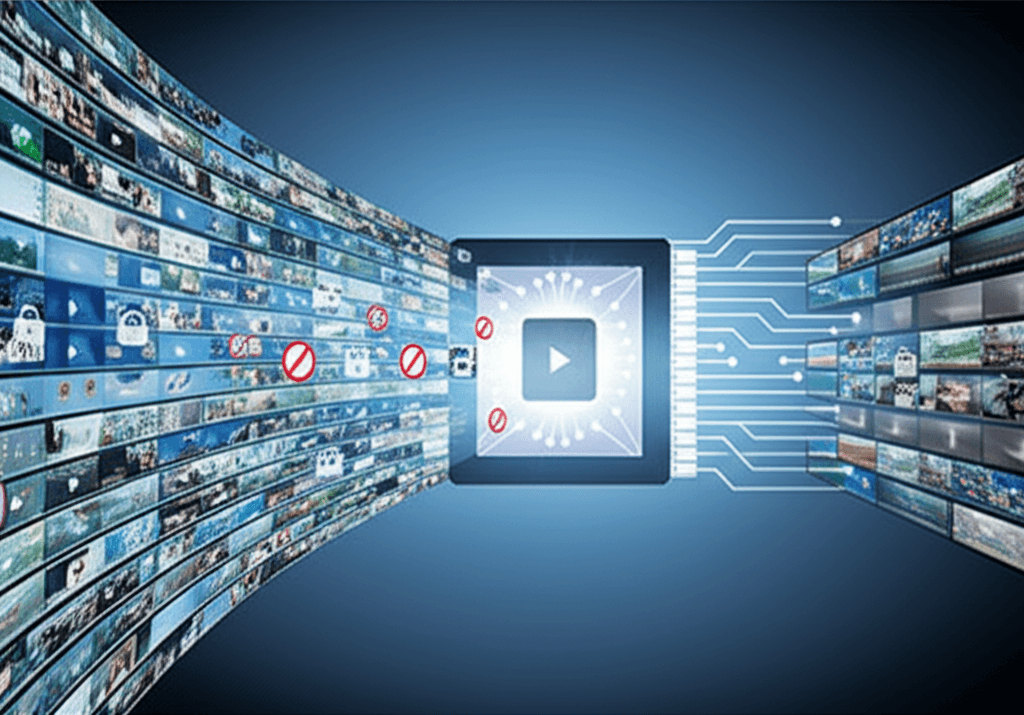Google uses YouTube videos for AI, sparking creators' consent firestorm.
YouTube creators feel betrayed as Google uses their videos for AI training without explicit permission or compensation.
June 20, 2025

Google is leveraging its vast and unparalleled library of YouTube videos to train its most advanced artificial intelligence models, a move that has ignited a firestorm of controversy among content creators who were largely unaware their work was being used for this purpose. The tech giant has confirmed that it is tapping into YouTube's repository of user-generated content to develop sophisticated AI, including its video generation model, Veo, and its flagship large language model, Gemini.[1][2] This practice grants Google a significant advantage in the competitive AI landscape but has simultaneously sparked serious concerns regarding copyright, creator consent, and the ethics of repurposing billions of hours of creative work without explicit permission or compensation.[1][3]
The core of the controversy lies in the fact that many YouTube creators were not informed that their videos were being ingested to train Google's AI systems.[4][2] While YouTube's terms of service have long granted the platform broad rights to use uploaded content for product improvement, creators did not anticipate this would extend to training AI that could one day generate synthetic content capable of competing with their own.[1][3] The revelation has left many feeling that their intellectual property and hard work are being exploited to fuel corporate AI development without their consent, credit, or financial benefit.[5][3] This lack of transparency has fostered a sense of betrayal within the creator community, raising fundamental questions about the ownership and control of digital content in the age of generative AI.[5]
In response to the growing backlash, Google and YouTube have attempted to clarify their position. Google has stated that it uses only a subset of YouTube's massive video library and that its practices are in accordance with its agreements with creators.[3][2] YouTube CEO Neal Mohan has emphasized that the platform's terms of service prohibit unauthorized scraping or downloading of content, a statement seemingly directed at competitors like OpenAI, which has also faced scrutiny over its training data sources.[6][7][8] Paradoxically, while warning others against using YouTube content, Google has been actively using it for its own models.[8][9] The company has introduced settings that allow creators to opt-out of having their content used for training by *third-party* AI companies, but critically, creators cannot prevent Google itself from using their public videos for its own AI development.[3][2][10] This distinction has done little to quell the anxieties of creators who feel they have no meaningful control over how their parent company utilizes their work.
The implications of Google's strategy extend far beyond the creator community, touching on complex legal and ethical issues that the entire AI industry is grappling with. The use of copyrighted material for AI training is a legally murky area, with numerous lawsuits pending against AI companies.[11][12] Proponents argue that using publicly available data constitutes "fair use," as the AI models are learning from the data, not simply reproducing it.[8] However, critics and many creators contend that it is a form of copyright infringement, especially when the resulting AI models are commercial products that could devalue or even replace the original creators' work.[5][13] The situation is further complicated by the capabilities of models like Veo, which can generate highly realistic, synthetic videos, raising fears about misinformation, deepfakes, and the erosion of originality.[1][14][15]
As the debate intensifies, the long-term consequences for the digital content ecosystem remain uncertain. Google's actions have highlighted a fundamental power imbalance between platforms and the creators who supply the content that makes them valuable. The controversy has prompted calls for greater transparency in how AI models are trained and for frameworks that ensure creators are fairly compensated when their work is used.[5][12] While Google has promised to indemnify users against copyright claims arising from its generative AI tools and is collaborating on likeness protection tools, many in the creative industry see these as reactive measures.[3][15] The unfolding situation serves as a critical test case that will likely shape future regulations, platform policies, and the very relationship between human creativity and artificial intelligence.